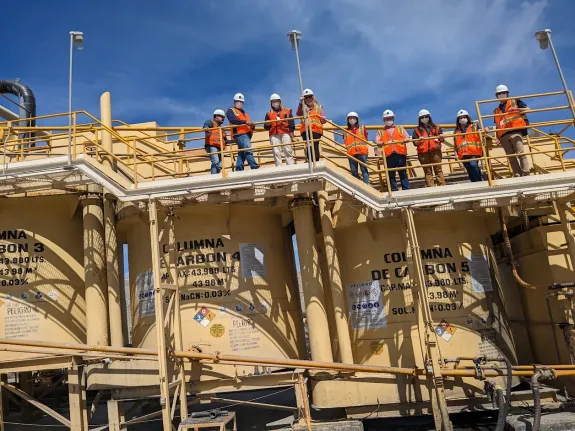
Initiatives and Engagement with Mexico
Engagement with Mexico is part of the institutional fabric at The University of Arizona. Cross-border collaboration has been a part of the education, research and service missions of this Land Grant institution since its foundation in 1885, and in order to face the grand challenges of the XXI Century , The University of Arizona stands ready to work with our partners in Mexico to create a better future.
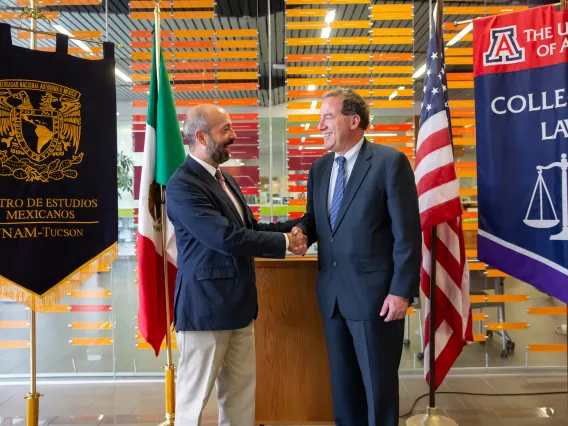
Diplomado in Mexican Public Law and Diplomacy
The University of Arizona James E Rogers College of Law and The National University of Mexico's Legal Research Institute partner to offer a Certificate (or Diplomado) Program in Mexican Public Law and Diplomacy.
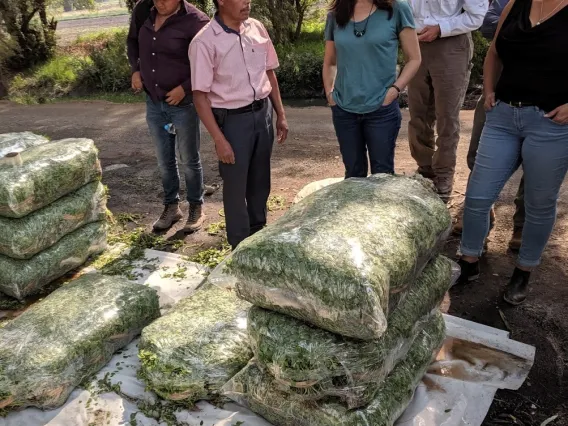
CDMX Sustainable Cities Initiative
The University of Arizona, in conjunction with the National Laboratory for Sustainability Sciences at UNAM (LANCIS) and the Secretariat for Science, Technology, Education and Innovation in the Government of Mexico City (SECTEI) are working together to create community-based solutions for sustainable food production for Mexico City.
Initiatives
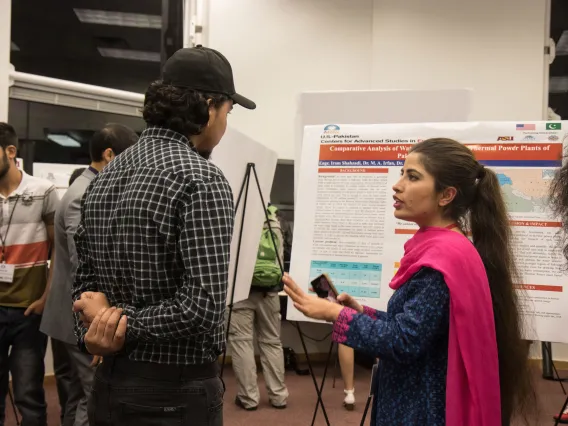
Arizona Student Energy Conference (AzSEC)
The Arizona Student Energy Conference (AzSEC) is an annual conference co-organized by Arizona State University, Northern Arizona University and UArizona which convenes graduate students and post-docs from the top universities in Arizona and Mexico as well as the state's leading renewable energy experts for an annual three-day symposium focusing on developments and exploration in the fields of renewable energy science, technology, and policy at the energy-water nexus. Participating institutions from Mexico include the University of Sonora, Tec de Monterrey, and UNAM.
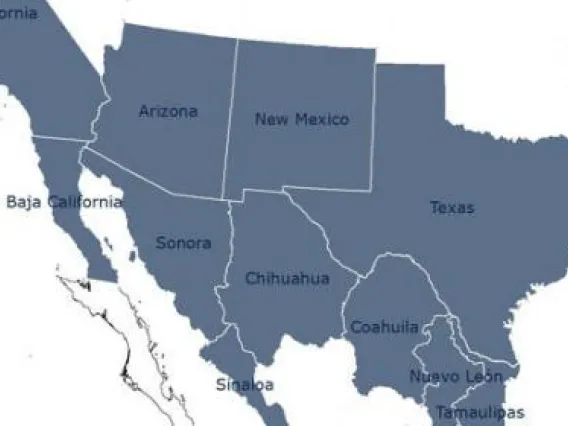
Arizona-Mexico Economic Indicators
Arizona-Mexico Economic Indicators: Arizona’s Trade & Competitiveness in the U.S.-Mexico Region focuses on Arizona’s trade with Mexico, assessment of the role of Arizona’s border ports of entry (BPOE) in the U.S.-Mexico border region, and monitoring key indicators of Mexico’s economy. To gauge Arizona’s competitiveness, comparative data are provided for other U.S. border states, as well as other major border ports connecting the U.S. and Mexico. Special attention is given to the Mexican states of Sonora and Sinaloa, with which Arizona has developed strong economic ties. However, as Arizona’s economy has become increasingly intertwined with developments in the larger region, comparative statistics are provided for all border states, and the national economies of the United States and Mexico.
Since 1999, The University of Arizona in partnership with the Arizona-Mexico Commission developed and published a unique set of regional economic indicators for the Arizona-Sonora Region. The last report in this series was completed and published in June 2009 (www.ebr.eller.arizona.edu). Since then, both the economic and political landscapes have changed at regional and global levels. Although Arizona’s economy is most closely tied to the neighboring state of Sonora, a growing and changing Mexico presents further opportunities for building new economic relationships. The new indicators reflect an expanded scope of interest as well as the application of new methodologies in data acquisition, timely updating processes, and delivery via cloud-based web technologies. Three other organizations with vital interests in Arizona’s economic relationships with Mexico --The Arizona Commerce Authority, the Arizona Department of Transportation, and the Arizona Office of Tourism – have joined the Arizona-Mexico Commission in supporting this project.
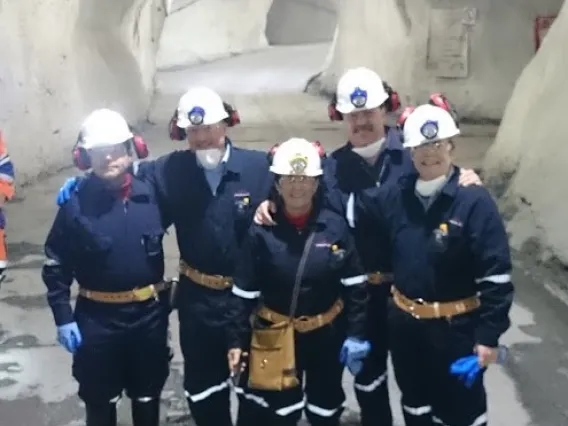
Binational Compatible Mining Initiative
Mining historically is an important economic activity both in Arizona and in Mexico, and it will only become more so as dependence upon precious metals and ores continues to increase through the Fourth Industrial Revolution. The University of Arizona hosts many units engaged in education, innovation and research dedicated to developing the next generation workforce and technologies for the mining sector. The Lowell Institute for Mineral Resources delivers workforce education and training solutions to mining and mining technology companies across the globe, including Mexico. The University also houses the Center for Environmentally Sustainable Mining focused on educational and research initiatives addressing environmental issues related to mining activities in arid and semi-arid regions. The James E. Rogers College of Law is home to the Global Mining Law program and the Eller College of Management, through the Executive Education Program and the Center for Leadership Ethics, has developed strong relationships with the principal mining companies in Mexico, including Fresnillo PLC. The University of Arizona works closely with the Mining Committee of the Arizona Mexico Commission to develop collaborative cross-border solutions in education and technology to meet the needs of the Arizona-Sonora Megaregion’s mining sector.
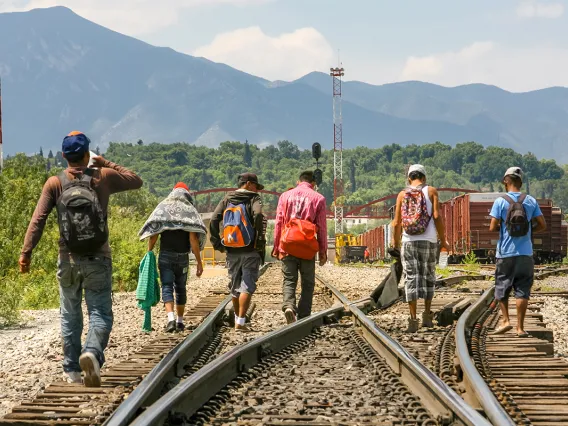
Binational Consortium on Migration, Human Security and Human Rights
The Binational Consortium on Migration, Human Security and Human Rights was formed in 2018 to provide a mechanism for collaboration between the Coordination of Humanities (UNAM) and the College of Social and Behavioral Sciences (UA) and to strengthen collaborative research on these critical issues. The Consortium provides financial support for the bilateral exchange of academic staff, researchers, technical specialists, and students associated with CH-UNAM and SBS focused on the development of bilateral, collaborative research on migration, human security and human rights.
The objectives of the Consortium are to: 1) Provide a mechanism and financial resources to strengthen joint research between UNAM and UArizona on issues of migration, human rights, and human security; 2) Support the mobility of academic staff and students related to Consortium goals; 3) Promote collaborations between relevant academic departments to allow undergraduate and graduate study for students at both institutions in areas related to issues the consortium addresses; and 4) Create a permanent exchange of bibliographic resources and other materials, as well as the co-publication of research products by Consortium members.
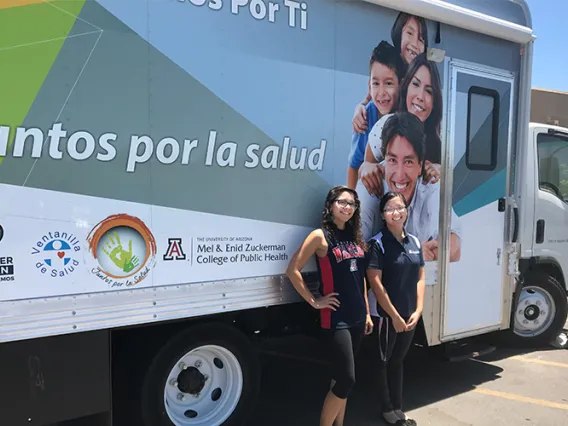
Border, Transborder, and Binational Public Health Collaborative Research
The Mel and Enid Zuckerman College of Public Health is committed to engaging with partners in Mexico to address the health challenges faced by U.S. - Mexico border communities and to identifying ways to improve current conditions. As a College of Public Health situated in the Southwest and one hour from the Arizona-Sonora border, the College feels a special commitment to border communities in both Arizona and Sonora. College of Public Health outreach encompasses building opportunities for our students, faculty and staff to engage in meaningful community-engaged research, service, and education throughout the bi-national region. Highlights of the College of Public Health programming in the U.S. – Mexico Border Region include:
1) Binational Network for Healthy Communities in the Sonora-Arizona Border Region:
Since 2014, the College of Public Health has coordinated a binational Sonora-Arizona network of researchers, providers, educators, and activists to provide information regarding ongoing research, outreach and education to improve the quality of life in the border region.
2) Border Health Information for Action:
The College of Public Health in collaboration with Southeast Arizona Health Education Center (SEAHEC) coordinates an annual Sonora-Arizona event convening community organizations, health providers, health researchers, students and activists dedicated to improving the health and wellbeing of our border communities.
3) Binational Sonora-Arizona Farmworker Work Group
As part of the Binational Network for Healthy Communities, the Binational Sonora-Arizona Farmworker Workgroup was formed to promote health and wellness of agricultural workers and their families through advocacy, research and action in the Border region. The group consists of researchers and NGO’s focused on improving the quality of life of farmworkers and their communities. The group is developing a repository of information documenting the health and living and working conditions of farmworkers in the region as well as policy documents and issues affecting farmworkers.
4) Border Health Service Learning Institute
The Border Health Service Learning Institute is a week-long, one credit graduate level course which takes place in our border communities. Students, faculty, and community partners work together implementing a variety of activities aimed at strengthening the quality of life in our border region. Participants examine the relationship between migration, health, and economic development with an overarching theme of the role of public health professionals in border communities.
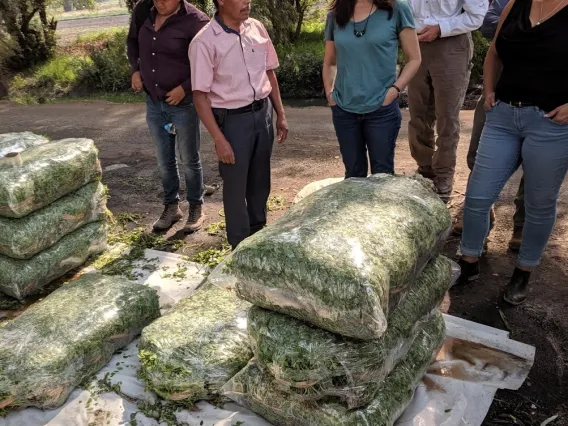
CDMX Sustainable Cities Initiative
The University of Arizona, through the College of Agriculture and Life Sciences, the College of Science, the College of Social and Behavioral Sciences, and Biosphere 2 in conjunction with the National Laboratory for Sustainability Sciences at UNAM (LANCIS) and the Secretariat for Science, Technology, Education and Innovation in the Government of Mexico City (SECTEI) are working together to create community-based solutions to provide local, nutritious food to the population of Mexico City and to sustain a fragile natural resource base in the periphery threatened by encroaching development, while providing a sustainable livelihood to the producers. The demand for a viable and sustainable greenbelt in CDMX flows from several areas – city planners, academics, and civil society representatives are committed to a healthy megacity buffered by a significant rural zone which guarantees the preservation of the natural resource base, cultural heritage, and historical traditions of its diverse population.
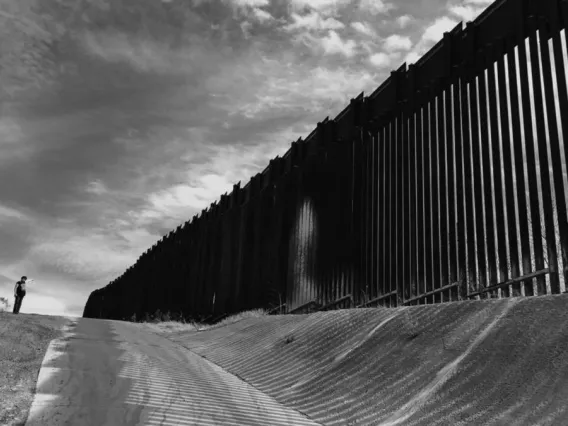
Center for Border and Global Journalism
The Center for Border & Global Journalism was created at the University of Arizona to bring greater focus to the challenges facing journalists everywhere, as they engage a more globalized and more perilous world. Working with academic departments across campus, and leveraging the work of the UA School of Journalism faculty not only along the border with Mexico but also in the Middle East and Afghanistan, the CBGJ will explore programs and initiatives to preserve and extend the kind of free and independent global reporting that is essential to democratic societies. To advance those ambitions, the center draws upon the School of Journalism’s existing relationships with several other units and programs on campus, including the School of Middle Eastern and North African Studies, the Center for Middle Eastern Studies, the School for Government and Public Policy and Center for Latin American Studies. The CBGJ will also build on relationships with other outside groups such as the Dart Center for Journalism and Trauma, the International Center for Journalists and the Investigative Reporters and Editors, as well as professional media organizations such as The New York Times and the Associated Press.
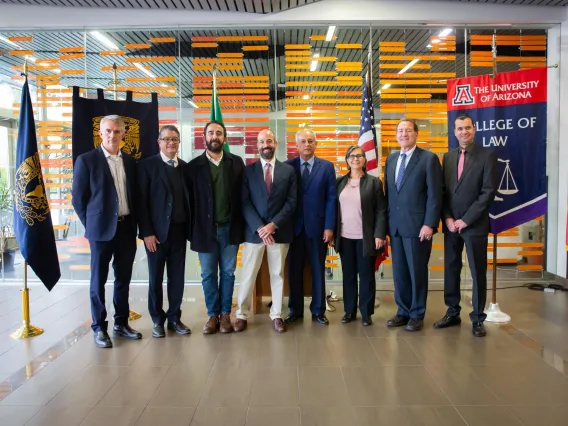
Diplomado Program in Mexican Public Law and Policy
The University of Arizona James E Rogers College of Law and The National University of Mexico's Legal Research Institute have partnered to offer a Certificate (or Diplomado) Program in Mexican Public Law and Diplomacy which will be delivered in four mutually exclusive modules over Spring and Fall 2020. The courses will be taught by UNAM Legal Research Institute guest lecturers including Juan Luis González Alcántara, Justice of the Supreme Court of Mexico, and José De Jesús Orozco Henríquez, Commissioner of the Inter-American Commission on Human Rights among other respected Mexican legal experts. This is an unparalleled program and a novel approach to academic partnerships that affords UArizona students access to renowned scholars in Mexican constitutional law while studying in Tucson or online.
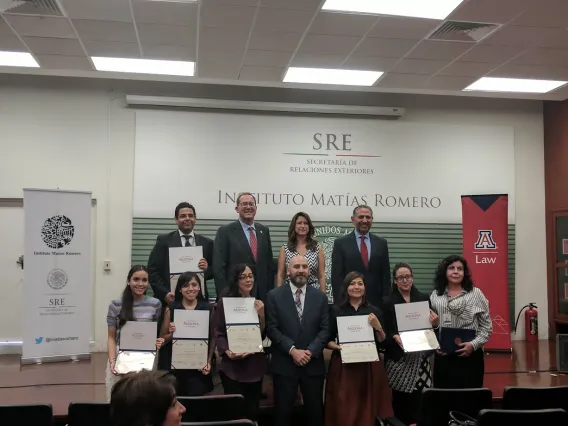
Foreign Diplomat Training Program with Mexico's Ministry of Foreign Relations (SRE)
In a program developed jointly by the Mexican Foreign Ministry (Secretaría de Relaciones Exteriores) and the University of Arizona James E. Rogers College of Law, Mexican diplomats are learning the foundations of American law from a U.S. law school in order to enhance consular services and strengthen binational relations. Members of the Mexican diplomatic corps based in cities across the U.S. and in Mexico are enrolled in a rigorous online program about American law and policy with courses designed by University of Arizona Law professors with extensive experience in their fields and with expertise in presenting the administrative and constitutional structures that support the rule of law.
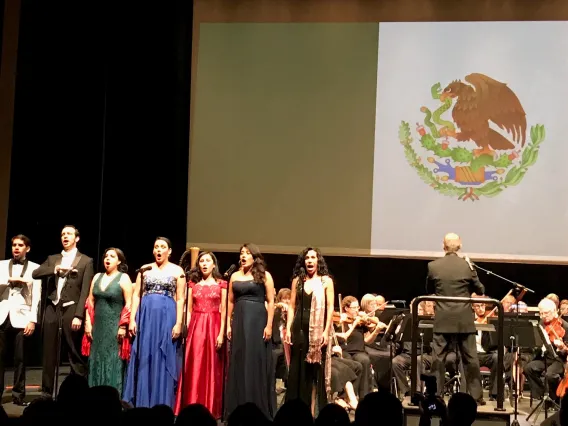
Fred Fox School of Music Mexico Engagement
The University of Arizona’s Fred Fox School of Music (FFSOM) has developed a deep and broad relationship with partners in Mexico that reflects the importance of Mexican cultural and musical heritage to Tucson and Arizona. FFSOM maintains a regular faculty exchange with UNAM’s Facultad de Música, which has engendered a semestral series of reciprocal concerts and teaching stays between the two schools. Very significant is the collaboration that has been developed by the Vocal department at FFSOM with UNAM, that culminated with the co-production of the Mexican opera, La hija de Rappaccini, which was presented in Tucson and at el Festival el Aleph at UNAM in 2018-2019. Faculty in the Vocal department have also developed a rich partnership with the Festival de Ópera de San Luis Potosí together with the Southern Arizona Symphony Orchestra, which has brought a series of talented Mexican vocalists to Tucson for the annual Mexican Independence Day concert hosted by the Consulate of Mexico in Tucson. FFSOM regularly presents performances in the borderlands and throughout Mexico of its talented faculty and students, and this past year hosted a very special concert by the Esperanza Azteca Symphony Orchestra Revolución from the Autonomous University of Ciudad Juárez.
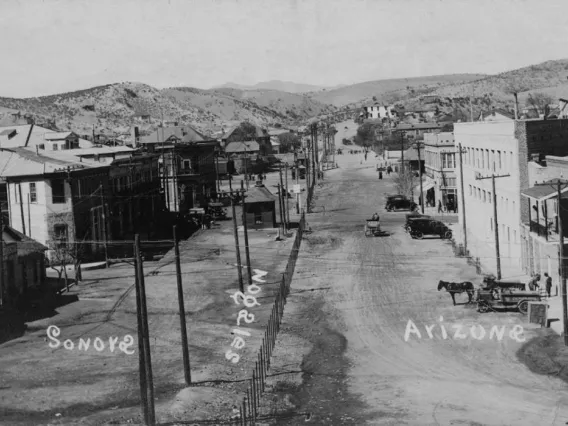
Fronteridades
“Fronteridades: Nurturing Collaborative Intersections in the U.S.-Mexico Borderlands” program at the University of Arizona is aimed at collecting and sharing the stories and art of people at the U.S.-Mexico border while creating new learning opportunities. The program, supported by an $800,000, two-year grant from the Higher Education and Scholarship in the Humanities program of The Andrew W. Mellon Foundation, is part of the University’s larger aim to become the leading institution for borderlands scholarship, deemed its Border Lab initiative.
Through its program activities, Fronteridades seeks to achieve two major goals: (1) Narrate the Border: Collect, understand, and share the narratives, stories, art and effects of those from and crossing through the US-Mexico border, for local and non-local audiences. (2) Expand Border Learning: Create opportunities for experiential learning in, on and of the US-Mexico border for scholars and interested people across fields and disciplines. The dual goals of narration and learning are embedded in the 3 programs that make up Fronteridades: Border Community Storytelling, the Creative Scholars program, and El Intercambio Conferences.
The strengthened connections with the people and organizations on the ground at the border will not only foster an environment of intellectual and artistic autonomy in border communities, but it will also create new possibilities for dialogue and allow for previously nonexistent opportunities of student learning, research, and collaboration.

